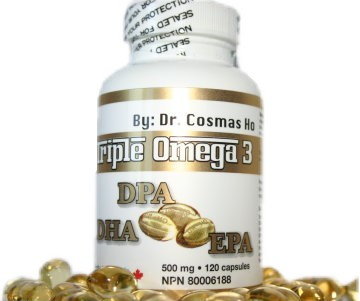As of January 1, 2004, all (Natural Health Products) NHPs must comply with the Natural Health Products Regulations. NHPs identified as posing an unacceptable risk to the health of Canadians will be removed from sale. The nature of compliance actions will be in accordance with the Health Products and Food Branch's (HPFB's) Compliance and Enforcement Policy
(POL - 0001). The objective of Health Canada's compliance and enforcement activities is that all NHPs comply with the Regulations. As of January 1, 2004, many non-compliant NHPs are on the Canadian market. Accordingly, Health Canada's compliance approach will be to prioritize on a risk-mitigation basis in order to most appropriately apply departmental resources and capacity and will be in accordance with the HPFB's Compliance and Enforcement Policy.
The Natural Health Products Compliance Guide (NHPCG) describes the process by which the risk posed by a particular product is assessed. The criteria outlined below were developed in order to aid in determining the risk to health posed by a product. A product meeting any one of these criteria will be considered a risk and open to compliance action.
Ensure your family is buying only Premium Quality, Pharmaceutical Grade Products.
Buy Dr. Ho's Omega 3 Products & Be Guaranteed
1. How will Bill C-51 change the way natural health products are regulated?
Bill C-51 will not affect the way that natural health products are regulated in Canada. The Natural Health Product Regulations, introduced in 2004, will continue to operate the same way under the proposed Bill C-51. Bill C-51 has been drafted to complement and support current policies for natural health products.
The Natural Health Product Regulations already recognize that natural health products are different from drugs, and that the evidence requirements for drugs are not appropriate for natural health products. Bill C-51 does not change this. In fact, Bill C-51 supports different requirements for different types of products. Therefore, the standards that are used to assess the risks and benefits of natural health products will continue to incorporate history of use, traditional uses and cultural practices.
The regulated activities for natural health products have already been identified in the Natural Health Product Regulations, and do not change. These regulated activities are: manufacturing, packaging, labelling, importation and distribution of natural health products for sale. Revisions to the list of controlled activities in Bill C-51 are only for cells, tissues and organs.
For natural health products, compliance and enforcement activities will continue to be guided by the Compliance Policy for Natural Health Products and the Health Products and Food Branch Inspectorate's Policy--0001. This means that any future decision to take action will continue to be based on the same risk-based principles used today: the higher the risk to human health and safety posed by a natural health product, the more immediate the compliance and enforcement action.
2. Why is it necessary to regulate natural health products?
The legislation requires vigilance to ensure that tainted products are found and recalled, that what is on the label is actually in the bottle, and that health claims are supported by evidence. Health Canada often issues warnings about mislabelled products or products that have serious adverse reactions. For example, diethylene glycol was found in fluoridated toothpaste and liver toxicity has been associated with the use of a Black cohosh product that was found to contain a species of the plant different than the one stated on the label. We have also seen cases where a natural health product makes a completely unfounded health claim- the ability to cure cancer or SARS for example. In addition, the increasing import of products and ingredients from foreign countries will require oversight to assure product safety and quality for Canadians.
3. Why aren't natural health products regulated and legislated as foods?
The Natural Health Products Regulations were developed based on the recommendations of the Standing Committee on Health.
During the development of the Regulations, the vast majority of stakeholders indicated that they did not want natural health products regulated as foods.
4. Will I still be able to get my natural health product at my local health food store under Bill C-51?
Yes. Canadians will continue to have access to natural health products that are safe, effective and of high quality. The Bill does not apply to retail sale of natural health products and therefore will not alter consumers' ability to access products.
5. Is Bill C-51 targeting natural health products practitioners or consumers?
No, the activities of natural health products practitioners falls under provincial jurisdiction. Personal use of products by consumers is also not affected by Bill C-51. The regulated activities for natural health products are already identified in the Natural Health Products Regulations, and remain unchanged. These activities are: manufacturing, packaging, labelling, importation and distribution of natural health products for sale. The new definition of "sale" in Bill C-51 will not affect practitioners. The relationship between practitioner and patient for compounding falls under the definition of "practice of medicine" and is under provincial jurisdiction. Bill C-51 respects this arrangement.
6. What harm/safety issues justify the Natural Health Products Regulations?
The Natural Health Products Regulations are the Government of Canada's response to the Standing Committee on Health's 1997 report "Natural Health Products: A New Vision". In its report, the Standing Committee recommended that a unique regulatory framework for natural health products, separate from the Food and Drug Regulations, be created. These recommendations were made following a thorough analysis of consumer use of natural health products as well as the way in which these products were being regulated at the time (as drugs under the Food and Drug Regulations).
While natural health products are generally low risk, Health Canada has addressed a number of health and safety issues relating to natural health products, as was found with adulterated products such as the prescription drugs benzodiazepines in sleep aids and sildenafil in herbal products for erectile dysfunction.
There have been substitution problems as was found with diethylene glycol in fluoridated toothpaste, and incorrect plants being used in a Black Cohosh product (which are for relief of the symptoms of menopause). Also, where good manufacturing practices have not been respected, there have been safety issues around bacterial contamination, and the presence of heavy metals, including arsenic and lead. Infants, children and the elderly are particularly vulnerable to these types of contamination.
7. How will Bill C-51 impact manufacturers/suppliers of, and thereby my access to, professional caliber therapeutic products?
Bill C-51 will not impact the way in which natural health products are regulated in Canada. Manufacturers and importers of natural health products will continue to be subject to the same regulatory requirements they have been subject to since the implementation of the Natural Health Products Regulations in January 2004.
8. Since the introduction of the Natural Health Products Regulations, is there an example of a natural health product being converted to a prescription drug?
No. Since the Natural Health Products Regulations came into force in 2004, there have been no amendments to convert a product from a natural health product to a prescription drug.
9. Do Natural Health Products require DIN numbers?
No they do not. Natural health products require a Natural Product Number (NPN) or, in the case of homeopathic medicines, a Homeopathic Medicine Number (DIN-HM) in order to be legally sold in Canada. This requirement has been in place since January 1, 2004 under the Natural Health Products Regulations. The evidence requirements under the Natural Health Products Regulations are flexible, and different from those relating to DIN drugs. The standards that are used to assess the risks and benefits of natural health products will continue to incorporate history of use, traditional uses and cultural practices.
10. Will changes to the Food and Drugs Act result in a ban on natural health products? Will this change mean a prescription will be required for natural health products, like Vitamin C?
No. There is nothing in Bill C-51 that changes the regulatory status of natural health products from over-the-counter, as they are now, to prescription. Under Bill C-51, Canadians will continue to have access to natural health products that are safe, effective and of high quality.
Natural health products will continue to be regulated in the same way under the Natural Health Product Regulations, which have been in force since January 1, 2004.
11. Why does Bill C-51 change the definition of "sell" and how will this impact small natural health product business owners?
Under Bill C-51, the definition of "sell" is amended to provide clarity with respect to distribution and leasing activities. These clarifications would mainly apply to cells, tissues and organs and to medical devices. These changes do not impact natural health products.
12. Why is it necessary to have such a dramatic increase in fines and penalties?
While fines under Bill C-51 have increased, the highest fines are intended to be applied for the most severe contraventions. A minor contravention would not be treated in the same manner as an incident that has significant impacts on the health and safety of Canadians. For instance, in dealing with cases of counterfeit, Health Canada has been limited to imposing a maximum fine of $5,000. This is in comparison with other jurisdictions where fines for similar contraventions have been in excess of $5,000,000. Canada's fines and penalties structure is over 50 years old and is significantly behind modern international regulatory authorities such as the United States, Europe, Australia and New Zealand. Canadians deserve the same protections as citizens of other countries. An increase in fines and penalties will deter companies who do not intend to comply with the Food and Drugs Act and its Regulations. The increase is meant to emphasize the importance of maintaining the integrity of the Canadian supply chain, which all Canadians rely on for safe health products.
13. Why should Health Canada be able to decide what a Natural Health Product can or cannot say in regards to claims of health benefit?
Health Canada's mission is to help the people of Canada maintain and improve their health. Part of this includes having appropriate checks in place to help ensure that the natural health products Canadians use are safe, effective and of high quality and also that products are labelled accordingly and truthfully (including any warnings or cautions) so that Canadians can make safe and informed choices.
Having a unique set of regulations for natural health products allows for them to be considered within appropriate parameters, and allows for health claims to be made based on evidence that is appropriate for these kinds of products.

